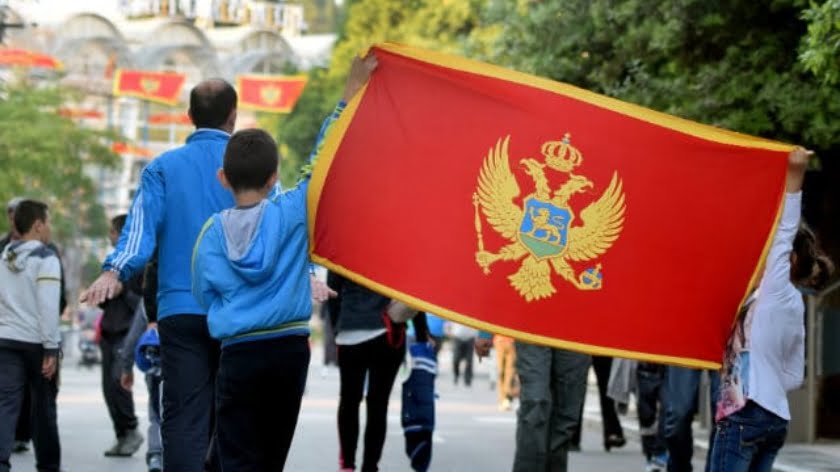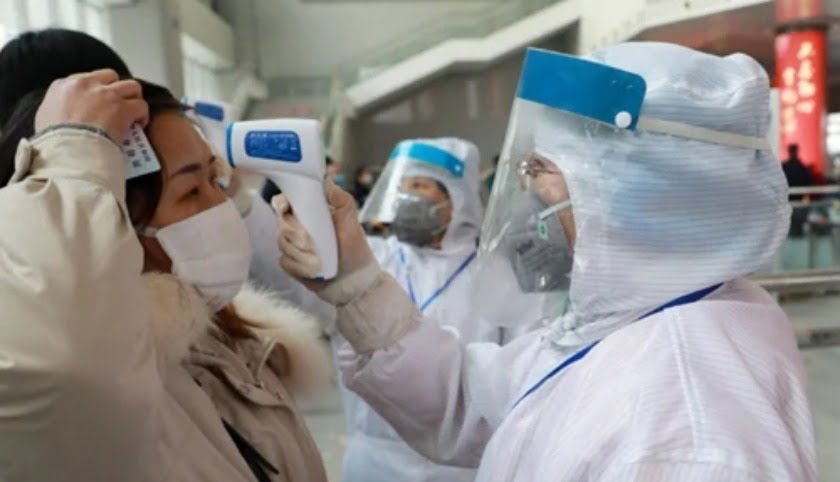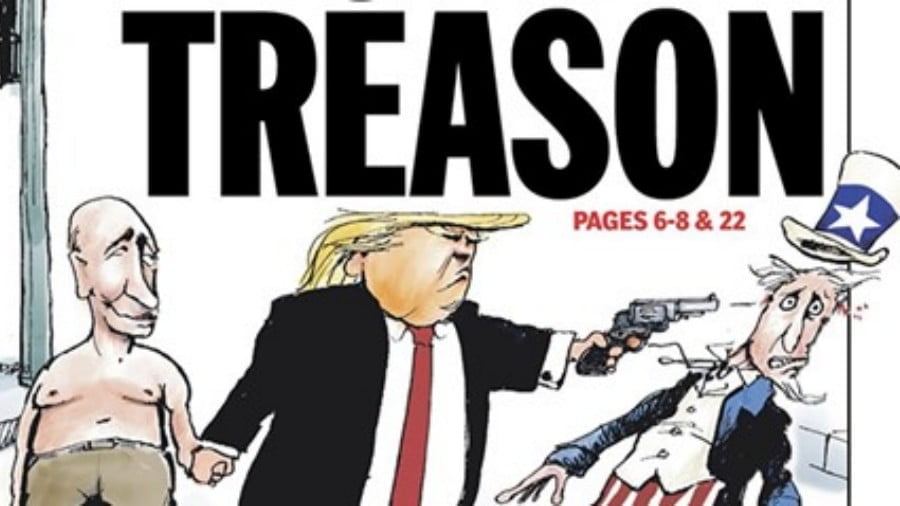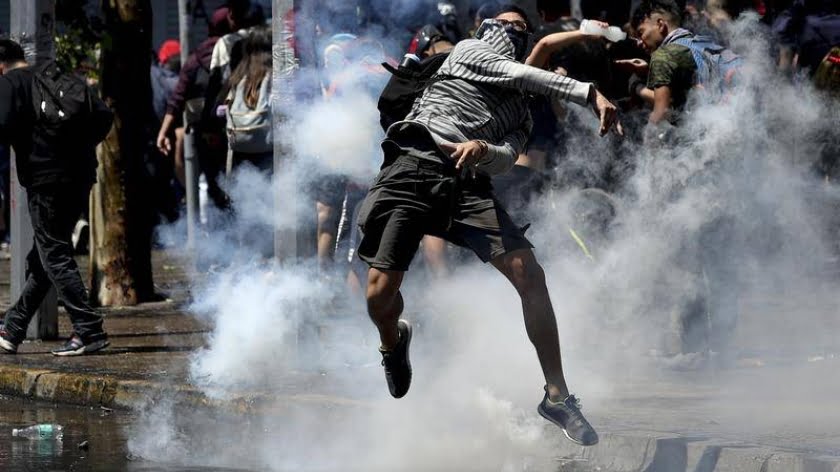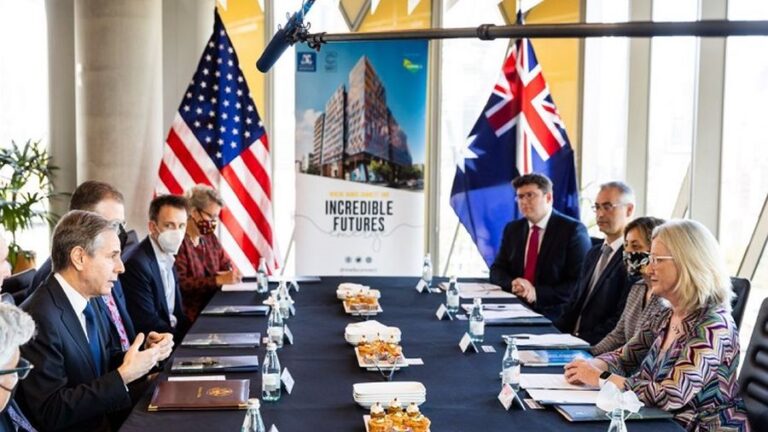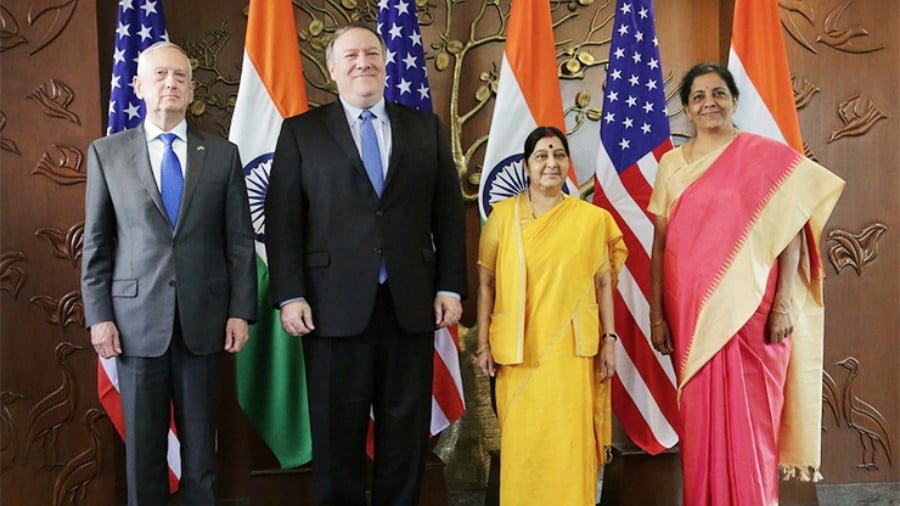Geopolitics of Montenegrin Serbs
In Montenegro, since 1945 and the beginning of the rule of the Yugoslav Communists, the process of assimilation of Serbs into Montenegrins is implemented. But, in this process, it is important to highlight the geopolitical turning point in 1997, when the current regime began to implement openly anti-Serb policy. Because under communism, although almost everyone had to declare themselves nationally as Montenegrins, they were nonetheless Montenegrins who were in the Serbian/Slavic cultural and historical circle. However, since 1997, the current government in Montenegro has started the project of independent Montenegro, with the ultimate goal that ethnic Montenegrins no longer belong to the Serbian/Slavic cultural and historical circle. No less important is the task of keeping the number of Serbs in Montenegro at the level of statistical error. The entire policy of the ruling party in Montenegro comes down to the fact that Serbia, and now Russia, are external enemies, while Serbs in Montenegro are internal enemies.
However, it turned out that Serbs were a harder nut than expected, so the assimilation process did not go as quickly as expected. Although the independence referendum was held in 2006, the current government has failed to impose a Montenegrin identity on Serbs. And if all post-war censuses from 1948 to 2011 were fictitious and did not reflect the real situation, and on such census in 2011 there were “too many” Serbs. According to the US Central Intelligence Agency (CIA), 42.9 percent of Montenegrin people speak Serbian, and another two percent speak Serbo-Croatian, while Montenegrin speak 37 percent.(1) Also interesting is the survey of CEDEM agency, which is close to the ruling party, according to which 46.6 percent of respondents believe that in Montenegro should only exist Serbian Orthodox Church, while only 4.9 percent believe that there should be only the Montenegrin Orthodox church (2)
The final assimilation phase
The main objective of the current government is not only to build new generations through a purely Montenegrin identity, but through an anti-Serb identity. This process cannot be performed overnight, it takes time. In accordance with that, there was a Serbian writer expulsion from school textbooks, the introduction of two new characters, which even president of Montenegro Milo Djukanovic does not use.
Revision of history, recognition of Kosovo, the presence of a Montenegrin officer at the celebration of the Croatian military operation “Storm” (which carried out the largest ethnic cleansing since World War II), Montenegro’s entry into NATO and open attack on the Serbian Orthodox Church, clearly indicate that the authorities are entering to the final phase of Serb assimilation. The system of work of the Democratic Party of Socialists and its political partners is simple. Authorities carry out assimilation, and encourages Serbs to emigrate. Serbs who cannot withstand social pressure are forced to leave Montenegro. However, those who are unable to leave Montenegro are forced to assimilate and become national Montenegrins. The Montenegrin national project is implemented primarily through economic pressure, that is the main lever for the assimilation of Serbs. And besides, there is strong pressure in the media, education system, cultural institutions… And as time goes regime is becoming more violent.
Warning of US hawk
Why Milo Djukanovic and Democratic Party of Socialists have Western support, explains openly one of the main American hawks for the Balkan – Daniel Serwer. In his statements, Serwer clearly states that there is no good opposition in Montenegro, because the opposition in Montenegro is not pro-NATO and pro-European, and it is not for an independent Montenegro.
“There is now no room for President Milo Djukanovic to step down because opposition forces in Montenegro are not only questioning NATO membership and joining the EU, but also Montenegrin independence. Government changeability is necessary and I would like to see it, better sooner rather than later. I also told that directly to the president, “explains Server.
Serwer also added that any change in government must offer an alternative.
“That is my point: without serious opposition, which is not tied to Moscow, it will be impossible for Djukanovic or his party to leave power. But that day should come. No one should stay in power forever. It’s been a long time, though recognition must be given to the President for leaving office several times, “he stated.
Serwer “explained” that creating a serious opposition that is not influenced by the Kremlin is a long process.
“I do not think that the process of creating a pro-European opposition should wait for membership in the European Union. Already then, Montenegro should be a serious democracy. Of course, this process of creating opposition forces that will not rely on Moscow will take years. The time to begin this process is now. It is important to emphasize that those who oppose (Montenegrin) independence and NATO membership cannot form that serious pro-European opposition,” stated Server. (3)
The Machine can work without Djukanovic
However, the process of creating a pro-NATO and pro-European opposition has already begun, and gives excellent results. Political party Democratic Montenegro is today the strongest opposition party in Montenegro. And things will only get worse for Serbs and pro-Russian parties unless their policies, which have been catastrophic so far, change. At present, the main focus of the ruling party – apart from winning the next parliamentary elections – is the census, which will be held in 2021. The Government’s goal is to make ethnic Montenegrins a majority nation, with less than 20 percent of Serbs. That is why the activity of the Montenegrin institutions, which is visibly intensified, will in future only be more brutal.
The striking brigade for the implementation of this plan is administration under Government control, that does strong economic pressure on Serbs. In addition to strong economic pressure, there is also media pressure in which an open revision of history is performed. However, some analysts think that it is enough that Milo Djukanovic leave the power, and that the Serbs after that will once again be the majority in Montenegro. But, they are wrong! Because, we could see that even when Djukanovic was withdrawing, the anti-Serb machine was working excellent. The reason for this is that the seat of the anti-Serb machine is not in Montenegro, but outside. Behind the anti-Serb machine in Montenegro are liberals from the West. It is reasonable to suspect that the forthcoming census will be adjusted by the Government of Montenegro according to their interests, intentions and goals. Recent data on the number of Serbs working in Montenegrin institutions – presented by journalist Gojko Raicevic – was just another confirmation of discrimination against Serbs in that country. According to a document published by the Ministry of Human and Minority Rights in 2015, it is clear that Serbs have been expelled from the Montenegrin system. (4) Without a doubt, now the situation is even worse.
In light of the above, an urgent change in Serbian politics in Montenegro is needed. If Serbs want to survive in Montenegro, it is necessary to pursue a Serb policy, not a civic one. It is simply unbelievable that Serbs who make up a third of Montenegro’s population do not have a serious national party. How is it possible that New Serbian Democracy, a party that was founded to fight for Serbian interests in Montenegro, becomes part of civic party Democratic Front?! And now it can be seen that New Serbian Democracy is more concerned with the summer tourist season in Montenegro than about the position and rights of Serbs in Montenegro. The conclusion is clear, If there is no will and desire in New Serbian Democracy to return to the policy of protecting Serbian national interests, then it is necessary to form a new Serbian party, with strong infrastructure. A party that would predominantly work on the protection of Serbian national interests in Montenegro. And that means the establishment of new pillars of Serbian politics in Montenegro.
Five pillars of new Serbian Policy in Montenegro
1. The presence in every government of Montenegro. The New Serbian Democracy, which is now pursuing civic policies within the Democratic Front, is not interested to become a part of Montenegrin government as long as the Democratic Party of Socialists is in Government. Therefore, Serbs are the only ethnic group in Montenegro that is not represented in the Government of Montenegro. This needs to be changed, as Serbs must be part of the Government of Montenegro. Serbs need to take care of their interest only, which is why equal representation of Serbs in the institutions of Montenegro is needed. In principle, that means three to four ministries in the Government of Montenegro, as well as the position of Deputy Prime Minister of Montenegro, would belong to the Serbs. And in the future, support for that Serbian party would only increase. Because in that case, the Serbs would no longer be forced to vote for the Democratic Party of Socialists, but since the institutions of the system would be opened to them, they could decide for themselves who they would vote for. So that Serbian party would in future probably be the strongest political party in Montenegro.
2. Equal media representation. This is primarily related to the fact that the first or second Program of Radio Television of Montenegro broadcasts contents in Cyrillic and to have shows about Serbian history, art, culture…
3. Lifting of sanctions against Russia, and the establishment of strong cooperation with the institutions of Russia. There is no doubt that in Montenegrin government pro-Montenegrin option will oppose to cooperation with Russia, but Serb representatives in the Montenegrin government could, within their competencies, establish strong cooperation with the institutions of the Russian state.
4. Work on the formation of pro-Serbian and pro-Russian television that would have national frequency. Considering that Montenegro is a small country with a population of about 600,000, it would not require much money to set up such a television.
5. Formation of historical and economic region, which would also have partial autonomy. The municipalities of Niksic, Pljevlja, Zabljak, Pluzine, Savnik and Herceg Novi can thus constitute the economic region of Old Herzegovina. Such a region, which is also a historical region (Old Herzegovina belonged to Montenegro after the Berlin Congress) is important because it would make political balance. Old Herzegovina is predominantly populated by Orthodox Christians and is not pro-Montenegrin and pro-NATO oriented., but pro-Serbian and pro-Russian. In that region, the pro-Serb and pro-Russian parties would have power. More autonomy is also needed in places where Serbs are the majority population. Recently, the city municipality of Tuzi (predominantly Albanian-populated) became an independent municipality, having separated from Podgorica (the capital of Montenegro). At the same time, the pro-Serb settlement Zlatica (which is almost twice the size of Tuzi) does not even have the status of a city municipality. Perhaps the example of Zlatica and Tuzi is the best indicator of the disastrous policy of Serb political representatives in Montenegro. Because unlike Albanian political representatives who are predominantly concerned with Albanian national interests, Serb political representatives do almost nothing that is in Serbian national interest.
Only with such a policy can Serbs in Montenegro survive, and expect to be the main political factor in Montenegro again. What is important to point out is that as much as Serbian influence in Montenegro strengthens, so much will strengthen Russian influence in Montenegro. That is why Russia should more strongly and directly support the improvement of the position of Serbs in Montenegro.
By Slavisha Batko Milacic
Source: Inter Affairs, Russia

